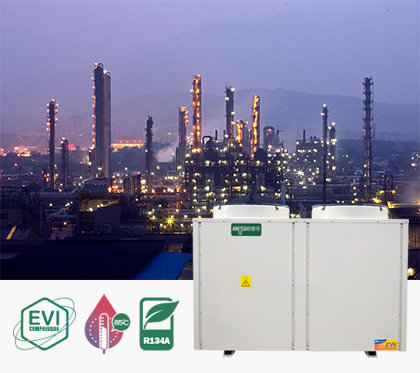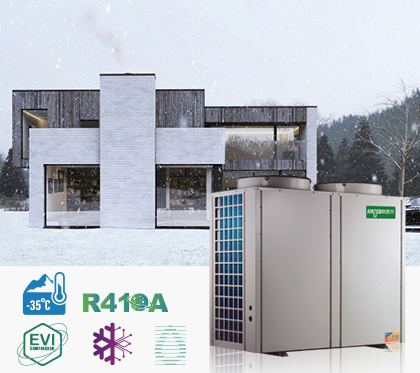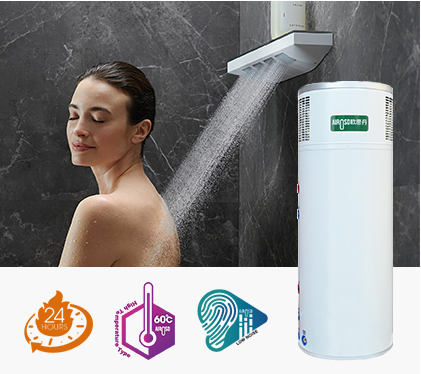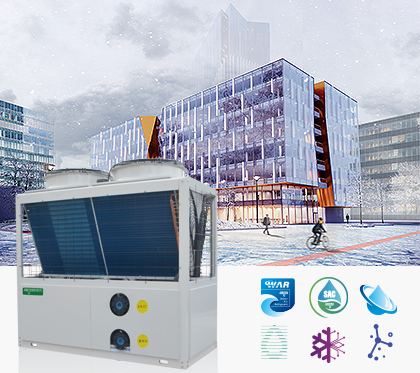Heat pump systems have emerged as a reliable and eco-friendly solution for heating and cooling homes and buildings in today's environmentally conscious world. With the increasing emphasis on energy efficiency and sustainability, heat pumps have become a popular choice for both residential and commercial spaces. Unlike traditional heating and cooling methods that rely on burning fossil fuels, heat pump systems utilize renewable energy sources, making them an environmentally responsible option.
The Heat Pump System Explained
At its core, a heat pump is a device that efficiently transfers heat from one location to another. It can extract heat from various sources, such as the ground, air, or water, and use it to provide comfortable indoor temperatures. A typical heat pump system consists of four essential components: the evaporator, the compressor, the condenser, and the expansion valve. These components work in harmony to facilitate the efficient transmission of heat.
How Does A Heat Pump Work?
The working principle of heat pumps is rooted in the fundamental laws of thermodynamics. In heating mode, heat pumps extract heat energy from the external environment, even in cold temperatures, and transfer it indoors to provide warmth. Conversely, in cooling mode, they absorb heat from indoor spaces and release it outside to cool the interiors.
The process begins with the evaporator, which absorbs heat from the heat source, be it the surrounding air, the ground, or water. As the heat is absorbed, a refrigerant—a fluid with a low boiling point—passes through the evaporator and undergoes a phase shift from liquid to gas. The compressor then elevates the pressure and temperature of the gaseous refrigerant, preparing it for the next stage.
Next, the heated refrigerant enters the condenser, where it releases the absorbed heat either into the indoor environment or the outdoor surroundings, depending on the mode of operation. As the refrigerant releases heat, it condenses back into a liquid state. Finally, the expansion valve regulates the flow of the refrigerant, reducing its pressure and temperature as it returns to the evaporator to repeat the cycle.

Types Of Heat Pump Systems
Here are some popular types of heat pump systems:
Air Source Heat Pumps (ASHP)
Air Source Heat Pumps (ASHPs) are the most common and popular type of heat pump system. They work by extracting heat from the ambient air and transferring it indoors to provide heating during cold weather. Additionally, ASHPs can reverse their operation to remove heat from indoor spaces and expel it outside, offering cooling capabilities during hot weather.
Advantages Of Air Source Heat Pumps (ASHPs)
Energy Efficiency: ASHPs are highly energy-efficient, providing significant cost savings on heating and cooling bills compared to traditional heating systems.
Ease of Installation: ASHPs are relatively easy to install and do not require extensive modifications to existing structures, making them a practical choice for both new constructions and retrofitting.
Year-Round Comfort: With the ability to provide both heating and cooling, ASHPs offer year-round comfort, eliminating the need for separate heating and cooling systems.
Environmentally Friendly: ASHPs use electricity to operate and transfer heat rather than burning fossil fuels, reducing greenhouse gas emissions and environmental impact.
Quiet Operation: Modern ASHPs are designed for quiet operation, ensuring a peaceful indoor environment.

Water Source Heat Pump Manufacturer
Ground Source Heat Pumps (GSHP)
Ground Source Heat Pumps (GSHPs), also known as geothermal heat pumps, utilize the stable temperature of the ground to provide efficient heating and cooling. These systems extract heat from the ground through a network of buried pipes known as ground loops. GSHPs can function in various configurations, such as vertical, horizontal, or pond/lake systems, depending on the available land and site characteristics.
Advantages Of Ground Source Heat Pumps (GSHPs)
High Efficiency: GSHPs are among the most energy-efficient heating and cooling systems available, delivering impressive energy savings and lower operating costs over the long term.
Stable Performance: The ground temperature remains relatively constant throughout the year, ensuring consistent and reliable system performance, regardless of outside weather conditions.
Long Lifespan: GSHPs have a longer operational lifespan than many other HVAC systems, with proper maintenance, they can last for decades.
Minimal Visual Impact: The majority of the GSHP system is underground, making it an aesthetically appealing option for homeowners and preserving outdoor spaces.
Environmentally Friendly: By utilizing the earth's natural heat, GSHPs are an environmentally friendly heating and cooling solution, with minimal greenhouse gas emissions.
Water Source Heat Pumps (WSHP)
Water Source Heat Pumps (WSHPs) extract heat from nearby water sources, such as lakes, rivers, or wells, and use it to provide heating and cooling for buildings. These systems are particularly well-suited for larger residential and commercial buildings with high heating and cooling demands.
Advantages Of Water Source Heat Pumps (WSHPs)
High Efficiency: WSHPs can achieve high levels of efficiency, as water sources often maintain stable temperatures, providing consistent heating and cooling performance.
Reduced Energy Consumption: By utilizing water as a heat source, WSHPs reduce electricity consumption, leading to cost savings on energy bills.
Suitable for Large Buildings: WSHPs are an excellent choice for commercial and larger residential buildings, providing effective and efficient climate control.
Flexibility in Water Sources: WSHPs can draw heat from various water sources, including lakes, rivers, and wells, making them adaptable to different geographical locations.
Quiet Operation: WSHPs offer quiet operation, enhancing the comfort of indoor spaces without creating excessive noise.

China Air To Water Heat Pump Domestic Hot Water Factory
Geothermal Heat Pumps (GHP)
Geothermal Heat Pumps (GHPs) utilize the consistent temperature of the earth's subsurface to extract or dissipate heat. These systems are highly efficient and environmentally friendly, making them an attractive option for eco-conscious homeowners and businesses.
Advantages Of Geothermal Heat Pumps (GHPs)
Exceptional Energy Efficiency: GHPs are one of the most energy-efficient heating and cooling systems available, resulting in substantial long-term cost savings on utility bills.
Minimal Environmental Impact: GHPs utilize renewable energy from the earth, reducing the dependence on non-renewable energy sources and lowering greenhouse gas emissions.
Durability and Longevity: GHPs have fewer mechanical components exposed to external elements, leading to reduced wear and tear and an extended operational lifespan.
Space-Saving: GHP systems require less space compared to other heating and cooling systems, making them an excellent choice for properties with limited outdoor space.
Potential for Tax Credits and Incentives: Many regions offer tax credits and incentives for the installation of geothermal heat pump systems, further reducing the initial investment cost.
Conclusion
Heat pump systems offer an energy-efficient and sustainable alternative to traditional heating and cooling methods. It's a good choice to choose a heat pump for your house or business. If you are looking for a reliable heat pump manufacturer, AIROSD can help you. Come and get more product details from our website now!



